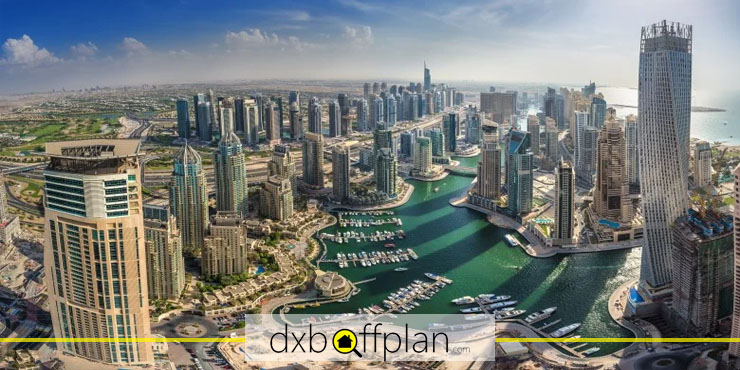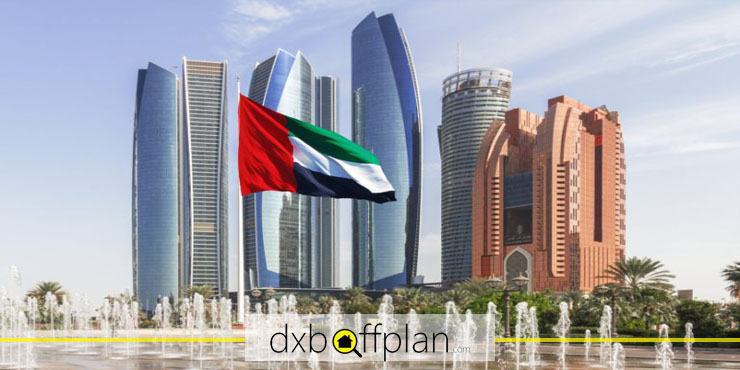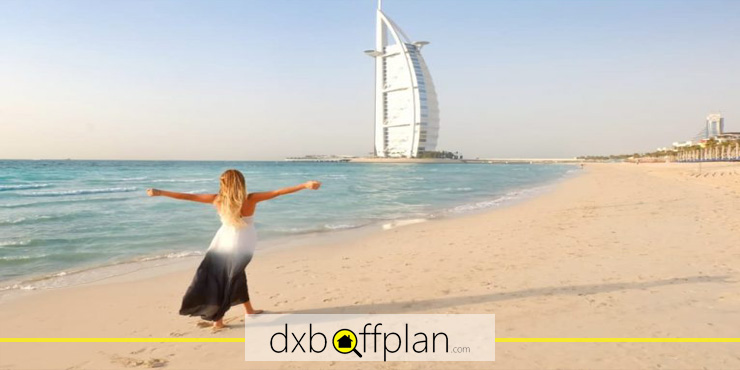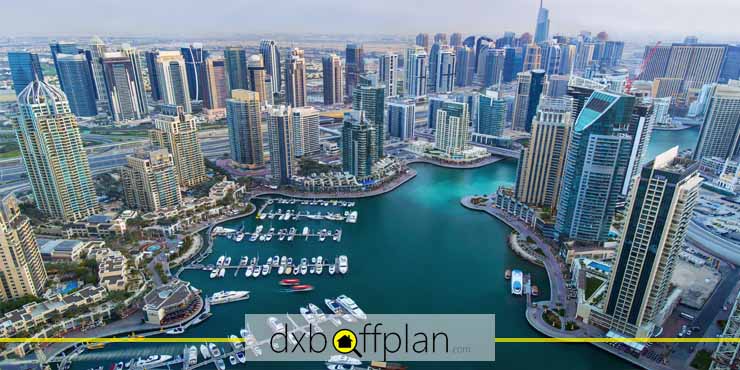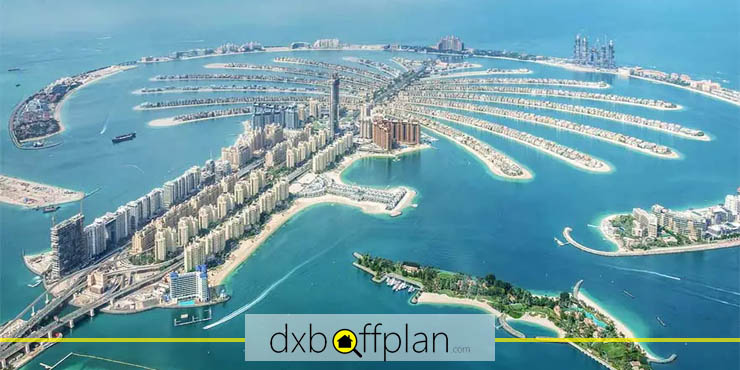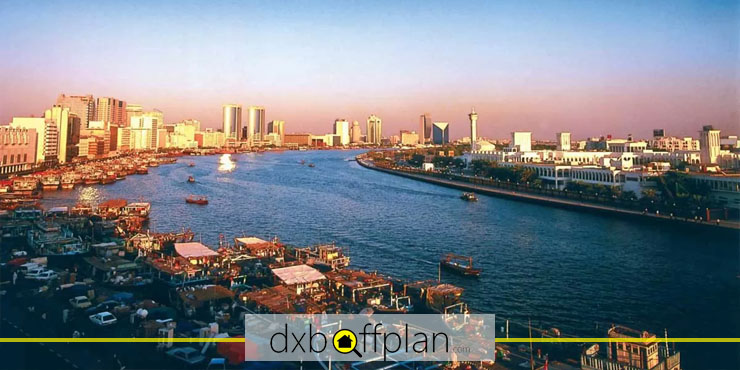How are the living conditions in the UAE?
The United Arab Emirates is one of the nations in the Middle East that has been one of the countries that has undergone the most substantial growth and development over the last few years. This nation is made up of seven emirates, each with its own distinct personality and set of tourist destinations. But without a shadow of a doubt, Dubai and Abu Dhabi are the two cities that are considered to be the most desirable by foreign residents.
Before choosing to relocate to the United Arab Emirates, you should educate yourself on the various benefits and drawbacks of living in the country. With the help of reputable sources, we will do our best to provide you with facts about Dubai and the living conditions in the UAE here in this post. Continue to be here with us.
Quick overview of the key points from the article:
- Dubai’s rapid economic growth has made it one of the leading job destinations in the Middle East.
- Employees in Dubai are exempt from paying income tax.
- High housing and living costs have turned Dubai into one of the most expensive cities in the region.
- With summer temperatures nearing 50°C, Dubai is among the hottest cities in the world.
- The city’s extremely low crime rate makes it one of the safest destinations for migrants.
- Dubai’s advanced education and healthcare systems offer high quality but come with significant costs.
- With residents from many nationalities, Dubai provides a multicultural environment grounded in Islamic laws.
- A modern public transportation system makes commuting in Dubai fast and convenient.
- Permanent residency in Dubai is not automatically granted, even after many years of living there.
The cultural and social atmosphere of the UAE
Despite the fact that the United Arab Emirates (UAE) has a history that stretches back thousands of years, the nation has undergone significant growth in the cultural and social sectors in recent years. Seven individual nations make up the United Arab Emirates, and each of these states has its own distinct cultural and socioeconomic traits.
The cultural landscape of the United Arab Emirates is very diverse and broad, including several museums, exhibits, libraries, theatres, and cinemas, among other cultural institutions. In addition, the United Arab Emirates hosts many cultural events, such as film festivals, art exhibits, and contests for writing poetry and short stories. Meanwhile, it is good to know that you can immigrate to UAE by buying property in Dubai.
Cultural Diversity in the UAE
We might highlight the cultural and linguistic variety of the society in the United Arab Emirates as one of the other features of the UAE’s rich cultural and social milieu. Because the population of the United Arab Emirates is comprised of individuals from all over the globe, a variety of tongues are used to communicate inside its borders.
Additionally, Islamic culture is honoured and revered in the United Arab Emirates (UAE), where it serves as the dominant culture; nevertheless, other cultures, including Hindu, Christian, Jewish, and others, also call this nation home. Also, keep in mind that by getting UAE residency, you can benefit high level of life. Moreover, you can travel to other countries. So knowing the list of countries you can travel to by getting UAE residency.
Respect for all cultures
One of the fundamental cultural and social foundations of the United Arab Emirates is respecting one’s own heritage and culture as well as the history and culture of others.
The people of the Emirate are passionate about preserving their history and heritage, which is why there are so many museums and exhibits in this country that are devoted to the Emirati people’s history and cultural heritage. Also, there are so many other benefits of getting UAE residency.
The lifestyle of people in the UAE
When discussing the cultural characteristics of the UAE, we may talk about the contemporary and active way of life, with an emphasis on the country’s continued economic growth and technological advancement.
In addition, it gives the residents of this nation access to amenities like excellent health, pleasant weather, transit services, communication and modern technology. So UAE is a good country for doctors. If you are a doctor, getting a UAE residence for doctors is the best option.
Recreation, tourism and daily life in the UAE
Visitors are drawn to the United Arab Emirates (UAE) because it is one of the most popular tourist destinations in the world and offers a wide variety of opportunities for relaxation and tourism.
Cities such as Dubai and Abu Dhabi, amusement parks, retail malls, historical sites, museums, different restaurants, natural parks, and stunning beaches can all be found in the United Arab Emirates (UAE). The following categories make up the vast majority of recreational and touristic pursuits available in the UAE:
- Visit Burj Khalifa, Burj Dosh, Burj Al Arab and other famous towers
- Visiting historical and cultural museums such as Louvre Museum, Dubai Museum
- Visiting amusement parks such as Yas Park and Vitro Water Park, and Al Ain Animal Park
- Visiting beautiful beaches and activities such as swimming, water sports and jet skiing
- shopping in shopping centres; Such as Dubai Mall, Mall of the Emirates and Yas Island
- Doing special sports such as skydiving, desert boarding and ballooning
- Participation in religious and cultural activities such as visiting the Grand Mosque and visiting Mecca and Medina
- Eating in various restaurants, such as Iranian, Lebanese, Indian and Middle Eastern restaurants
Vibrant and urban culture in UAE
Regarding the way people spend their days in the UAE, it is important to note that the UAE is home to vibrant and cutting-edge urban culture. There are many excellent urban amenities in the United Arab Emirates (UAE), and the cities of this nation, such as Dubai and Abu Dhabi, feature shopping malls, a variety of restaurants, decent hospitals, and schools of a very high level.
Additionally, the United Arab Emirates has highly high-quality and cutting-edge service facilities in transportation, communication, and technology areas. Remember that you can get UAE golden visa to get more benefits from living in UAE.
Human Rights in the UAE
It is fair to say that the situation regarding human rights in the UAE is one of the more problematic ones in the world. While the United Arab Emirates (UAE) has made strides forward in a variety of economic and cultural spheres, there are still some contentious human rights concerns.
Women’s rights rank high on the list of priorities for the United Arab Emirates (UAE). Although women in the UAE have the freedom to work and pursue an education, there are still several laws and regulations in the UAE that limit women’s rights. For instance, the rules regarding inheritance and the rights of women in court are not the same as the rights of males.
Human Rights in the UAE for Migrants
Other concerns pertaining to human rights in the United Arab Emirates include the rights of migrant workers, the rights of ethnic communities, and the rights of Muslims who are not Arab. Many migrant labourers from countries such as India, Pakistan, and Bangladesh are brought to the UAE for the purpose of providing low-cost employment. Also, knowing the monthly salary of a simple worker in the UAE is helpful.
These migrant workers are often subjected to extremely poor working conditions, are sentenced to jail in the UAE for minor causes, and have their rights severely restricted. In addition, the rights of people of Iranian and Afghan descent, for example, may be distinct from those of people of other indigenous nationalities in the UAE.
Operational Legislation on Human Rights in UAE
In conclusion, it is important to note that the United Arab Emirates (UAE) is still working towards enhancing its respect for human rights. For instance, the United Arab Emirates (UAE) enacted a brand new legislation in 2015 known as the “Operational Legislation on Human Rights,” which created measures to defend human rights in the UAE. Additionally, the administration of the United Arab Emirates (UAE) is now making strides in areas such as women’s rights, migrant workers, and ethnic groups.
So we can conclude that buying a house in Dubai is the best way to experience a better life. So a guide to buying property in Dubai can better help you. However, Turkey is also a good country. So we suggest you read the following article to choose better: Is it better to buy property in Dubai or Turkey?
The education system in UAE
The United Arab Emirates (UAE) has an expansive and varied educational system. Students in the UAE have the option of attending either public or private schools for their education. In addition, pupils who are not UAE citizens have access to various international schools.
The United Arab Emirates (UAE) has an extensive education system that provides students with a variety of educational opportunities at a variety of different levels, ranging from preschool all the way up to university and professional training. In addition, there are many different educational programmes accessible to kids who have special needs, both for the students themselves and for the professionals who work with them.
Enhanced quality of education system in UAE
In recent years, the United Arab Emirates has made significant strides in enhancing the quality of its educational system, which it has been working diligently to enhance. For instance, in 2015, the government of the UAE launched a programme called “Education Strategy 2021” to raise the general standard of education throughout the UAE.
It is fascinating to learn that one might remain in the UAE via the pursuit of educational opportunities. For more details, please refer to the following article: Getting UAE residency through education.
The health system in the UAE
In terms of medical care, the United Arab Emirates is among the most developed nations in the world. The government of the UAE has undertaken a significant number of measures across a variety of domains to enhance the general level of public health. The United Arab Emirates has a highly developed healthcare system that has hospitals, clinics, and other types of health centres that are both diversified and effective.
In addition, the government of the UAE puts out a significant amount of effort to combat the spread of infectious illnesses in the realms of public health and individual health. As you can see, the health system in UAE is very high. So buying property in instalments in Dubai and getting a residency is the best decision.
The well-managed health system in the UAE
Food and pharmaceutical items are subject to stringent scrutiny as part of the United Arab Emirates government’s efforts to preserve the nation’s high standard of living in terms of health. Additionally, in order to stop the dispersal of contagious illnesses across this nation, drinking water has been disinfected.
Overall, the United Arab Emirates is one of the top nations in this sector owing to the many efforts it has made in the field of health. This is due to the fact that the country has prioritised the health of its citizens. The cost of medical services in Dubai and other places may be rather high.
Cost of living in the UAE
The cost of living in the United Arab Emirates may vary significantly depending on the city and location in which a person resides. The following table provides an estimate of the cost of living in Dubai and various other cities in the United Arab Emirates:
Cost of living in Dubai
In the following, we will cover the cost of living in Dubai:
- Housing rent: 4000-15000 dirhams
- Food: 1000-2000 dirhams
- Transportation: 500-1000 dirhams
- Clothing: 500-1000 dirhams
- Travel and entertainment: 1000-2000 dirhams
Cost of living in Abu Dhabi
In the following, we will cover the cost of living in Abu Dhabi:
- Housing rent: 3000-12000 dirhams
- Food: 800-1500 dirhams
- Transportation: AED 400-800
- Clothing: 400-800 dirhams
- Travel and entertainment: 800-1500 dirhams
Cost of living in Al Ain
In the following, we will cover the cost of living in Al Ain:
- Housing rent: 2000-7000 dirhams
- Feed: 600-1200 per person
- Transportation: 300-600 each
- Clothes: 300-600 each
- Travel and entertainment: 600-1200 each
Cost of living in Sharjah
In the following, we will cover the cost of living in Sharjah:
- Housing rent: 2000-8000 dirhams
- Food: 500-1000 dirhams
- Transportation: AED 300-600
- Clothing: 300-600 dirhams
- Travel and entertainment: 500-1000 dirhams
It is important to note that the expenses shown above are estimates and that the actual cost of food in Dubai may differ from person to person based on factors such as personal circumstances, lifestyle, and the kind of dwelling.
Monthly Cost of Living in Dubai for Singles and Families
The table below provides an estimate of the monthly cost of living in Dubai for single individuals and families (4 members):
| Expense | Single Person (AED) | Family of 4 (AED) |
|---|---|---|
| Rent (City Center) | 7,000 – 12,000 | 18,000 – 35,000 |
| Rent (Suburbs) | 3,500 – 6,500 | 9,000 – 18,000 |
| Utilities & Internet | 500 – 1,200 | 1,500 – 3,000 |
| Transportation (Metro, Taxi, Fuel) | 300 – 800 | 800 – 2,000 |
| Groceries (Monthly Shopping) | 1,500 – 3,000 | 3,500 – 7,000 |
| Dining & Entertainment | 1,000 – 3,000 | 3,000 – 8,000 |
| Education (International Schools – Annual) | — | 30,000 – 100,000 (Yearly) |
| Health Insurance (Monthly) | 500 – 1,500 | 2,000 – 5,000 |
| Total (Approximate) | 10,000 – 25,000 | 30,000 – 70,000 |
These figures are approximate and can vary depending on lifestyle choices, location, and personal preferences.
Required Income for a Comfortable Life in Dubai
The income required for a comfortable life in Dubai depends on factors like lifestyle, housing location, and personal spending habits. A single person can manage with 8,000 – 12,000 AED per month for a basic lifestyle, but for a more comfortable living with moderate entertainment and a well-located residence, 18,000 – 25,000 AED per month is recommended. A family of four needs at least 25,000 – 40,000 AED per month to cover essential expenses such as housing, education, transportation, and leisure. However, for a luxurious lifestyle in high-end areas like Palm Jumeirah or Downtown Dubai, an income of 70,000 AED or more would be necessary.
The level of well-being and life expectancy in the UAE
People in the UAE has a very high standard of living and an exceptionally long life expectancy. This nation is one of the most economically developed nations in the world because of its abundant oil and gas resources. Moreover, if you are a rich person getting UAE residency through financial capability is a good idea to benefit from a high level of life in Dubai.
The government of the UAE is in a better position to provide improved health care, educational opportunities, and other forms of public service because of the country’s high per capita GDP. On the other hand, because the UAE is a relatively young nation, the country’s government has made significant efforts to enhance the quality of life of its citizens. It is continuing to make headway in this endeavour.
The highest life expectancy rates
The United Arab Emirates has one of the highest life expectancy rates in the world. The citizens of this nation report a high level of contentment and happiness, which may be attributed, in part, to the nation’s favourable employment market, high quality of living, consistent economic growth, and other favourable circumstances.
People in the UAE report higher satisfaction and happiness, partly because the country’s cultural and social environment is so vibrant and diverse. Additionally, the United Arab Emirates (UAE) is a fairly secure nation, contributing to its citizens’ general sense of safety and calmness.
Expats’ Challenges of Life in the UAE
Knowing expats’ challenges is very helpful if you wish to get Dubai residency through marriage. In the following, we will go through Expats’ challenges of life in the UAE.
Difficulty in finding work in the UAE
Some ex-pats in the UAE have trouble obtaining jobs, which may be a challenge for those looking for work in the country. Due to the nature of the regulations in this nation, much of the more common employment in this country is reliant on the inhabitants of this country.
Despite its hardness, so many ex-pats get Dubai residency through work. So try to find a job in Dubai and get a residency.
Expensive living conditions in the UAE
The United Arab Emirates (UAE) has some of the highest living costs in the world, particularly when it comes to the cost of housing and food. Because of low incomes and high living expenses, many immigrants are having trouble making ends meet.
Rights conditions in the UAE
Many foreign nationals living in the UAE are subject to rights limitations, particularly if they do not have a strong command of the Arabic language. Many local companies do not respect the rights of non-local employees, and they pay no attention to it.
Cultural Restrictions for Living in the UAE
Expatriates living in the UAE are subject to a variety of cultural limitations, particularly if they do not have an interest in Arab religion or culture. Because of rules that are based on Arab religion and culture, the United Arab Emirates places restrictions on a wide variety of cultural and recreational activities.
Language differences in the UAE
Some ex-pats living in the UAE will have a language barrier, particularly if they are not fluent in Arabic. This is especially true for those who do not speak English. Many immigrants may have trouble getting along with others as a result of this issue.
Despite language restrictions in UAE, you can still get Dubai residency through company registration. It is a very wise move to live in this country.
Is Dubai a Good Place to Live?
For years, many expatriates seeking success and growth have chosen the United Arab Emirates as a popular migration destination. If you plan to move to Dubai or other cities in the UAE, it is essential to be aware of the advantages and disadvantages of living there. However, rest assured that you will never regret your decision. Thanks to its excellent living conditions and numerous benefits, Dubai is one of the best choices for both living and migration.
The Most Expensive and Affordable Areas to Live in Dubai
Dubai is a city with a diverse range of residential areas, each offering unique features and varying costs, providing multiple options for residents. Below is an overview of some of the most expensive and affordable areas in Dubai.
Expensive Areas in Dubai
In the following, we will examine the expensive areas in Dubai.
- Dubai Marina: Known for its skyscrapers, waterfront restaurants, cafes, and scenic walking paths along the artificial canal, Dubai Marina is one of the most luxurious areas in the city. With a wide range of entertainment and lifestyle amenities, it remains a top choice for both residents and tourists.
- Downtown Dubai: Home to the iconic Burj Khalifa and The Dubai Mall, this area is considered the heart of luxury in Dubai. It is an ideal location for those who seek an urban and extravagant lifestyle.
- Palm Jumeirah: This man-made palm-shaped island offers luxury villas and apartments, five-star hotels, and private beaches. The average price of a studio apartment in this area is around 1,560,000 AED, while three-bedroom villas range between 10,964,000 AED to 15,000,000 AED.
Affordable Areas in Dubai
Next, we will examine the affordable areas in Dubai.
- International City: Known for its cultural diversity and low housing costs, this area is a great choice for expatriates and families. The availability of small to medium-sized apartments at reasonable prices makes it an attractive option.
- Al Nahda: With excellent public transport access and amenities such as shopping centers and schools, Al Nahda is popular among families and working professionals. Its relatively low rental prices and diverse housing options add to its appeal.
- Deira: As one of Dubai’s oldest districts, Deira features traditional markets and lower living costs compared to modern areas. It is a good choice for those looking for a more budget-friendly lifestyle while staying close to business hubs. Additionally, its proximity to commercial and office centers makes it ideal for people aiming to reduce commuting expenses.
- Al Qusais: Offering a variety of residential options at affordable prices, Al Qusais attracts many residents. Its proximity to industrial and commercial areas makes it an excellent choice for employees and families alike.
Is Dubai a Suitable Option for Retirees and Families?
With its modern infrastructure, high level of security, and diverse amenities, Dubai is an attractive option for retirees and families. The city boasts advanced hospitals, an efficient public transport system, and a variety of residential areas, including peaceful and family-friendly neighborhoods such as Mirdif and Al Warqa. Additionally, new residency regulations, such as the Retirement Visa and Golden Visa, allow retirees to obtain long-term residency in the UAE.
Despite the high cost of living, benefits such as tax-free income, warm weather, and an international lifestyle make Dubai an ideal choice for many families and retirees.
Banking and Financial Services in Dubai
Accessing banking and financial services in Dubai is relatively simple for both residents and non-residents. To open a bank account in the UAE, individuals typically need documents such as a passport, residency visa, proof of address, and a salary or income certificate.
Leading banks such as Emirates NBD, Abu Dhabi Islamic Bank, and Deutsche Bank offer a variety of current and savings account options. Additionally, obtaining home loans, personal loans, or car loans is possible for UAE residents, but eligibility requirements include a stable income, bank statements, and in some cases, job security verification. Interest rates and repayment terms vary depending on the type of loan and the bank. Moreover, online banking services and credit cards are widely available, enabling residents to conduct international transactions with ease.
Special Laws for Expats Living in Dubai
Living in Dubai as an expatriate comes with specific rules and regulations that must be followed to avoid legal issues. Public behavior in the city should be respectful; insulting others, engaging in fights, or excessive public displays of affection (such as kissing in public) can lead to fines or even deportation.
Regarding dress code, while Dubai is more relaxed compared to other parts of the UAE, it is recommended to wear modest and non-offensive clothing in public places such as shopping malls and offices. Public services like metro, taxis, and hospitals also have specific regulations. For instance, men are not allowed to sit in the women-only sections of the metro, and violations can result in fines. Although Dubai’s laws are strict, they are clear and transparent, allowing expatriates to enjoy a smooth and problem-free experience while living in the city.
Conclusion on living conditions in the UAE
You should better understand living conditions in the UAE after reading this article. We discussed the country’s economy, culture, security, leisure and public service options with you. In addition to that, we went through some of the advantages and disadvantages of living in the UAE.
We hope that by providing you with this information, you can make an informed choice about buying a house in Dubai. Read our articles, get in touch with Dxboffplan, and explore the rest of our website if you still have questions or want more information on the several ways of getting UAE residency.
frequently asked questions
The answer to this question depends on what you want from a city. As we said above, Dubai has a high level of condition for living. So If you want a luxurious lifestyle, then choose the city.
In general, yes. If you want to have a high level of life, you need to expend money. However, in some other aspects, UAE is the best place to live with a mid-level salary.
The cost of living in Dubai varies depending on lifestyle and location. Rent, transportation, food, education, and entertainment are among the main expenses.
Obtaining residency in Dubai is usually possible through a work visa, investment, property purchase, or the Golden Visa. The Golden Visa is granted to specialists, entrepreneurs, and investors, offering long-term residency.
Dubai offers numerous job opportunities, particularly in technology, finance, tourism, and construction. Salaries vary based on expertise and experience and typically include health insurance and other job benefits.
Yes, English is the primary language for business and communication in Dubai. Most signs, documents, and official correspondence are in English, though learning Arabic can be helpful in some situations.
Popular residential areas include Downtown Dubai, Marina, Jumeirah, Business Bay, Sports City, and Deira. Each area offers different advantages and price ranges, providing multiple options based on your needs and budget.
Dubai has a modern public transportation system, including the metro, buses, taxis, and trams. Car rentals and ride-hailing services like Uber and Careem are also available.
Yes, Dubai has reputable international schools, family-friendly entertainment facilities, high security, and quality healthcare services, making it an excellent choice for families.
Yes, non-residents can buy property in designated areas such as Palm Jumeirah, Downtown Dubai, and Jumeirah Beach Residence (JBR). Property purchases in these areas often come with long-term residency options.





